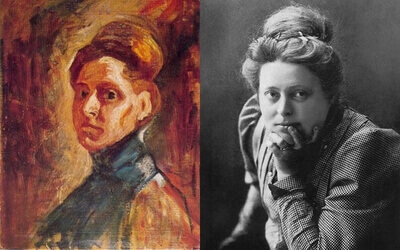Written by: Olivera Tolimir
Do you celebrate International Women’s Day?
Are you more of a let’s protest and fight for women’s rights kind of person, or do you think women should get flowers and chocolate today?
Hint: one doesn’t exclude the other!
While every mom will be thrilled by getting her kid’s hand-written card, we don’t like reducing this significant holiday to buying a rose.
If you’d like to be learning Serbian through life, here’s your chance! Learn about eight sentences to avoid on International Women’s Day in Serbia!
A kad je Međunarodni dan muškaraca?
(But when is International Men’s Day?)

Don’t ask for Men’s Day on Women’s Day!
Some men like to ask this question sarcastically because they think women consider themselves more important for having their day.
It’s not a problem that men want to celebrate Men’s Day. Since men make up the other half of the total population, it’s only fair they have their day, too.
And they do!
International Men’s Day is celebrated annually on November 19. It’s a day dedicated to problems men and boys often face.
So, why is this question problematic?
First, the question doesn’t have the wanted effect, because most women don’t deny men the right to have their day. They encourage it!
Although, indeed, International Women’s Day is more widely acknowledged and officially recognized by the UN.
But it’s not because women consider themselves privileged. Quite the contrary! Historically, women were denied the right to work, vote, or own property. That’s why they had to fight for their rights. And they won them!
So, International Women’s Day and International Men’s Day don’t have the same historical background. Women still have to fight for equality in many aspects of life.
This is why women in Serbia get pretty irritated when hearing the question about International Men’s Day.
Let’s be honest: if a person asking this question truly cared about men’s well-being, they would already know about November 19.
Wouldn’t they?
Izvoli cvet. Šta ima za ručak?
(Here’s a flower. What’s for lunch?)

Giving flowers to your significant other is nice, but doing your share of the chores is better!
International Women’s Day may be a bigger deal in Serbia than in many other European countries. But it’s mostly still about men buying flowers and chocolates for women.
Gifting flowers to your wife/girlfriend/mother is a nice gesture. We all like signs of affection. But let’s not make it only that.
It’s not celebrating women if a husband buys his wife a present but expects her to continue serving him.
An average Serbian is indeed more traditional than, let’s say, an average American. But that doesn’t mean Serbian women are asleep in the 19th century.
Take a cloth and help with the housework, mister! It’s your home, too.
Ja ću oprati sudove, danas je tvoj dan.
(I’ll wash the dishes, it’s your day today.)

Both partners should participate equally in house chores!
This example is similar to the previous one.
It’s not a caring gesture to spare your wife from the housework on March 8.
Spouses should divide chores equally during the whole year. That’s what the partnership is about. And that’s what International Women’s Day is about (among other stuff).
We’re celebrating how far women have come while continuing to go for true equality.
Koja to prava muškarci imaju, a žene ne?
(What are those rights that men have and women don’t?)
As soon as women in Serbia organize protests on March 8, someone appears and asks this.
Let’s list some of the discriminatory situations women face: glass ceiling, being expected to be the caregiver of children, husband, and household (guess who’s to blame if a man wears an unironed shirt), being judged for not taking their husband’s last name, poor conditions in maternity hospitals, women’s health problems being brushed off as normal occurrence, and last but certainly the most important: making the absolute majority of victims of domestic violence.
So, yes, women still have fights to fight.
Žene, vi držite porodice na okupu, hvala vam što se žrtvujete.
(Women, you hold families together, thank you for all your sacrifices.)

Women shouldn’t be the only ones to sacrifice for the family!
Although this is a common way for Serbian politicians to extend words of affirmation for Women’s Day, don’t try it if less than two meters away from a woman. It might get dangerous.
All jokes aside, some women might even find these words complimenting. But they’re problematic in the core.
How is this problematic, you wonder?
It’s praising women and all the sacrifices they make for their families.
Ahem.
It’s praising women by telling them it’s their job to make everyone else happy. Even worse, it tells them it’s normal to put their needs last or even forget about them completely.
While selflessness is one of the most admirable human traits, it’s wrong to put it all on women’s backs. Women shouldn’t always be the ones to make sacrifices and compromises. Two adults starting a family should always have each other’s best interests in mind. It’s all right for a wife to sacrifice something for the family, but next time a husband should be the one to do it.
A ko ti čuva decu?
(But who’s watching your children?)

Fathers are just as important in children’s lives as mothers, so don’t think of them as helpers only!
When both parents live together and raise children jointly, it’s insulting to ask this question to the woman exclusively.
This especially happens when an old-school acquaintance sees a woman having coffee with her friends. They’ll act all surprised and ask who’s watching her kids.
The your distinction is crucial here: they won’t ask about their children. No, it’s her children.
And when the mother (also surprised) answers they’re with their father, there’s another gold statement.
Please keep reading.
Blago tebi! / On je tako sjajan!
(Lucky you! / He’s so great!)
Please don’t do this. If you wouldn’t praise a woman for staying at home with kids, so her partner can enjoy some time with his friends, don’t be fascinated when a man does it.
Both mother and father are parents. Therefore, they both deserve their time to recharge!
Here’s a great filter if you’re unsure whether a statement is sexist. If something is expected from one gender and praised when it comes to another – avoid saying it!
Dear women, if someone keeps saying things like this to you, nemojte da kružite kao kiša oko Kragujevca, but tell them directly to stop because it’s insulting!
Happy International Women’s Day! Srećan Dan žena!
Stay strong and confident! Ostanite snažne i samouverene!
Women make up the majority of our team. And our wonderful teachers are a part of it. Book a trial lesson with one of them and start learning Serbian today!



